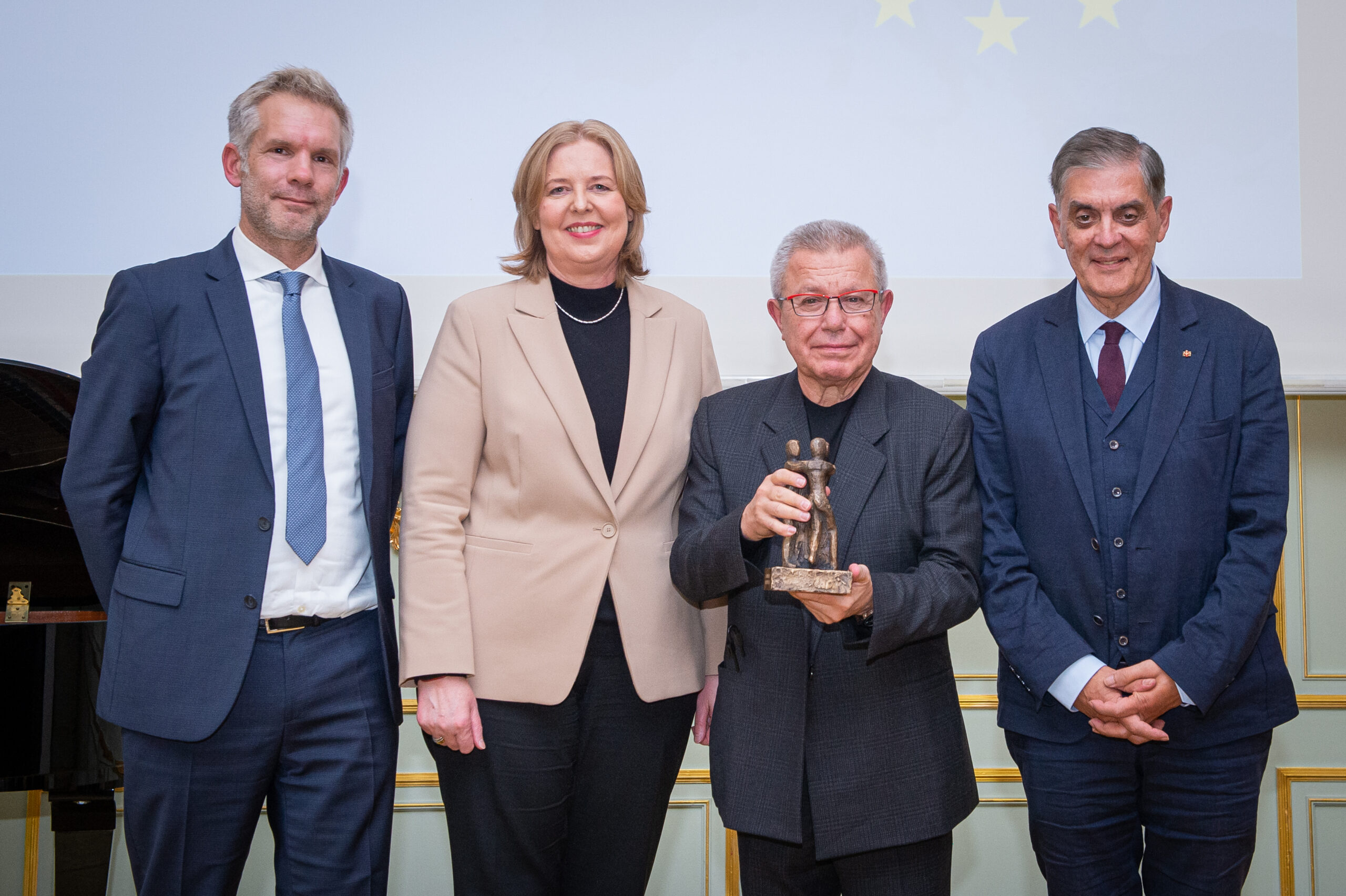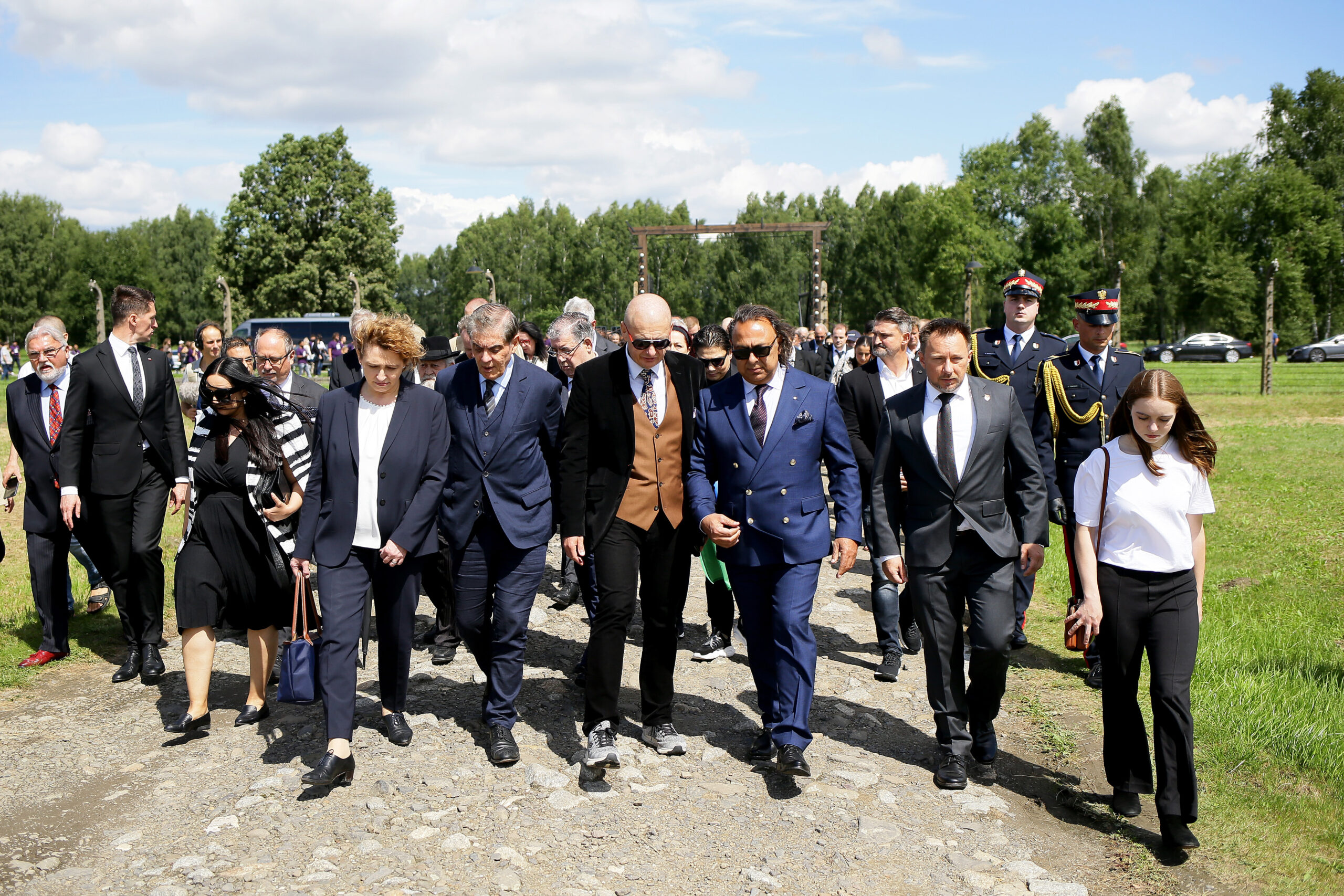On March 17, 1982, then Chancellor Helmut Schmidt received a delegation from the Central Council of German Sinti and Roma, which had been founded shortly before, in the Federal Chancellery in Bonn and recognized the Holocaust of the 500,000 Sinti and Roma for the first time in a way that was binding under international law for the Federal Republic of Germany.

The recognition of the genocide of the Sinti and Roma in National Socialist Europe by Chancellor Schmidt on March 17, 1982 was the first political success of the Central Council of German Sinti and Roma, which had been founded on February 6, 1982. Following the meeting with the Central Council delegation, the Chancellor issued a far-reaching statement that marked a turning point in the Federal Republic’s treatment of members of the minority:
‘Sinti and Roma were severely wronged by the Nazi dictatorship. They were persecuted for racial reasons. Many of them were murdered. These crimes constituted genocid.’
Romani Rose who led the delegation in 1982 and has been chairman since the foundation of the Central Council of German Sinti and Roma, reminiscing on the occasion of the 40th anniversary:
‘The recognition of the genocide by Chancellor Schmidt at that time created the necessary precondition for the successful civil rights work of the past 40 years. Politically, we have achieved a great deal in this long period of time; more than I could have imagined 40 years ago. Our thanks go to all the politicians of the democratic parties in Germany who have supported us on our way and often accompanied our civil rights work for decades. Now we face the great challenge of socially countering the often clichéd image that the majority still has of members of the minority with a true image. Therefore, we want to focus even more on the influences that Sinti and Roma have had and still have on the cultural development of Europe. In doing so, it is important for us as German Sinti to make clear that we are first and foremost Germans and that our cultural identity as Sinti does not contradict our national identity.‘
The recognition of the genocide by Helmut Schmidt 40 years ago was a turning point in the long history of civil rights work, because until then, the survivors were denied the moral recognition as victims of the National Socialist “racial policy” and their claims for compensation. Sinti and Roma were recorded and marginalized on the basis of ancestry after 1945, and an image of the enemy was consolidated that continued to poison the social climate and discriminate against Sinti and Roma in all areas of life, such as finding work or housing. The cause of this failure was rooted in the continuity in racist thinking, which provided the basis for continuing to hold on to the antigypsyist enemy image that enabled the former perpetrators to rehabilitate themselves for their involvement in National Socialist crimes.
Today, 40 years after the founding of the Central Council of German Sinti and Roma, the recognition of the genocide by Chancellor Schmidt and after decades of persistent civil rights work, Germany has faced up to its history in an exemplary manner. Sinti and Roma have been recognized as a national minority alongside the Sorbs, Danes and Frisians since 1998, the national memorial of the Sinti and Roma of Europe murdered under National Socialism was inaugurated in Berlin in 2012, and state treaties have been concluded at the state level in various German states.
Today, the Federal Republic is a democratic state in its majority will, which also deals with undesirable developments and comes to terms with them. In particular, the Federal Criminal Police Office and many state criminal police offices have taken on their own history and scientifically illuminated the injustices committed. Now the demand of the Bundestag’s Independent Commission of Experts on Antiziganism (UKA), whose report was published last year, must be implemented and the post-war history in the authorities, associations and institutions, as well as the continuity of antigypsyist practice beyond 1945, must be looked at.
The new Federal Government Commissioner against Antigypsyism has a special role to play here. He must push this scientific reappraisal, accompany it and constantly remind the Federal Government that it is its responsibility to finally “make up for lost time”, as the title of the UKA report says.




